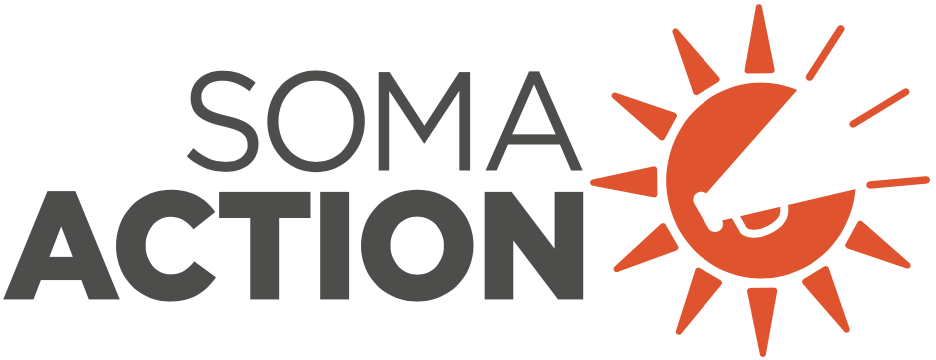Democrats in Jeopardy of Losing the Senate
With the election barely in the rearview mirror, it seemed like we could relax for a bit. But, no, Democrats are already in jeopardy of losing the Senate. New SOMA Action trustee, and co-captain of the Georgia Senate team, Allison Posner answers a few questions about the issue:
So, what exactly is the issue here?
In my opinion there are two major issues at play. The first is that many Republican state legislatures are moving quickly to pass laws that will only worsen voter suppression. We are seeing this across many GOP controlled states where Biden narrowly won, like Georgia, Pennsylvania, Arizona, and more. We’re seeing it most acutely in Georgia where the House is ramming through a whole package of bad bills that will severely limit mail-in voting, restrict early voting, eliminate and/or restrict Sunday voting, and more - all aimed at suppressing the vote of Black constituents who statistically use these types of voting methods more AND are the constituents most likely to vote for Dems in the midterms. So, we have a voter suppression problem AND we only have a razor thin edge in the Senate. We have to hold on to every Dem seat up for reelection PLUS win some seats if we want to pass meaningful and, quite frankly, popular legislation if we are not looking at the elimination of the filibuster.
Which Senate seats are the Dems most likely to lose?
According to multiple outlets, including the Cook Political report, the consensus seems to be that the following 4 states are leaning Dem or Toss Up: Arizona, Georgia, New Hampshire and Nevada. These 4 races are certainly going to be ones to watch. Getting a handle on who these senators are, who may be their opponents, who needs money now - these 4 will certainly be important. Similarly, there are a few seats that are currently leaning Republican, but could also be toss ups, in which case, we will also have our work cut out with them as well: Florida, North Carolina, Ohio, Pennsylvania and Wisconsin.
What sorts of things do we need to be doing to ensure this doesn’t happen?
We are still very early in these races. The best things we can do are pay attention and stay engaged. Read everything you can from reputable news sources. Follow candidates that you are supporting on social media, see what sort of campaign their teams are running. See if they are asking for specific ways to help. Are there bad bills trying to get passed in your state? In a friend or family member’s state? Encourage them to call their elected officials and make their voices heard. The other thing that is always helpful is money. Donations to candidates, causes, and organizations that are working to elect progressives always need funds. Later, the nitty gritty work can begin like phone banking, text baking, post card writing, and hopefully, a strong and safe resurgence of door-to-door canvassing. Having real conversations with voters (whether in person or over the phone) have been the key to winning races. Providing information to make sure more folks can vote is the way to win. We saw that during the Georgia races - it wasn’t magic, it was math.
How do we know these actions will be effective?
Being an active participant in democracy is always an effective tool in electing candidates we believe in and passing important legislation. We may not win every race or pass everything on our wish list, but we’ll never regret the work we did.
Do I really need to start now?
YES! Ideally, we should all be starting to set up a recurring donation to candidates who will need our support the most. I also highly recommend giving to organizations within each state where races are going to be tight. Organizations like Fair Fight or New Georgia Project in Georgia are doing the painstaking work of fighting voter suppression and registering new voters. And of course, reading the Soma Action blog and weekly action blasts will keep you informed as we start to build action within our own local communities.

